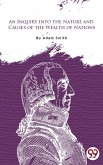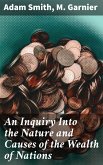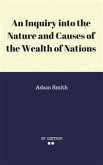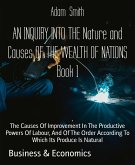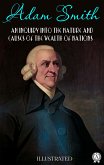In "An Inquiry into the Nature and Causes of the Wealth of Nations," Adam Smith deftly explores the foundations of economic theory, presenting a comprehensive analysis of the dynamics of production, labor, and trade. Employing a luminous prose style that intertwines philosophical introspection with empirical observation, Smith navigates the complexities of a burgeoning capitalist society in the 18th century. His seminal work critiques mercantilism while advocating for free markets and the 'invisible hand' that guides economic self-interest towards collective benefit, solidifying the book's status as a cornerstone of classical economics. Adam Smith, often revered as the father of modern economics, was not only a philosopher but also a keen observer of human behavior, shaped by the Enlightenment ideals of his time. With a background in moral philosophy and an acute awareness of the socio-political currents of his era, Smith crafted this treatise to challenge prevailing economic doctrines and to illustrate the potential of individual initiative in fostering societal wealth. Readers seeking to comprehend the intricacies of economic principles and their historical evolution will find Smith's work indispensable. "Wealth of Nations" is not merely an economic manuscript; it is a profound discourse on human society that continues to resonate with contemporary debates on capitalism and ethics in economics.
Dieser Download kann aus rechtlichen Gründen nur mit Rechnungsadresse in A, B, BG, CY, CZ, D, DK, EW, E, FIN, F, GR, H, IRL, I, LT, L, LR, M, NL, PL, P, R, S, SLO, SK ausgeliefert werden.




